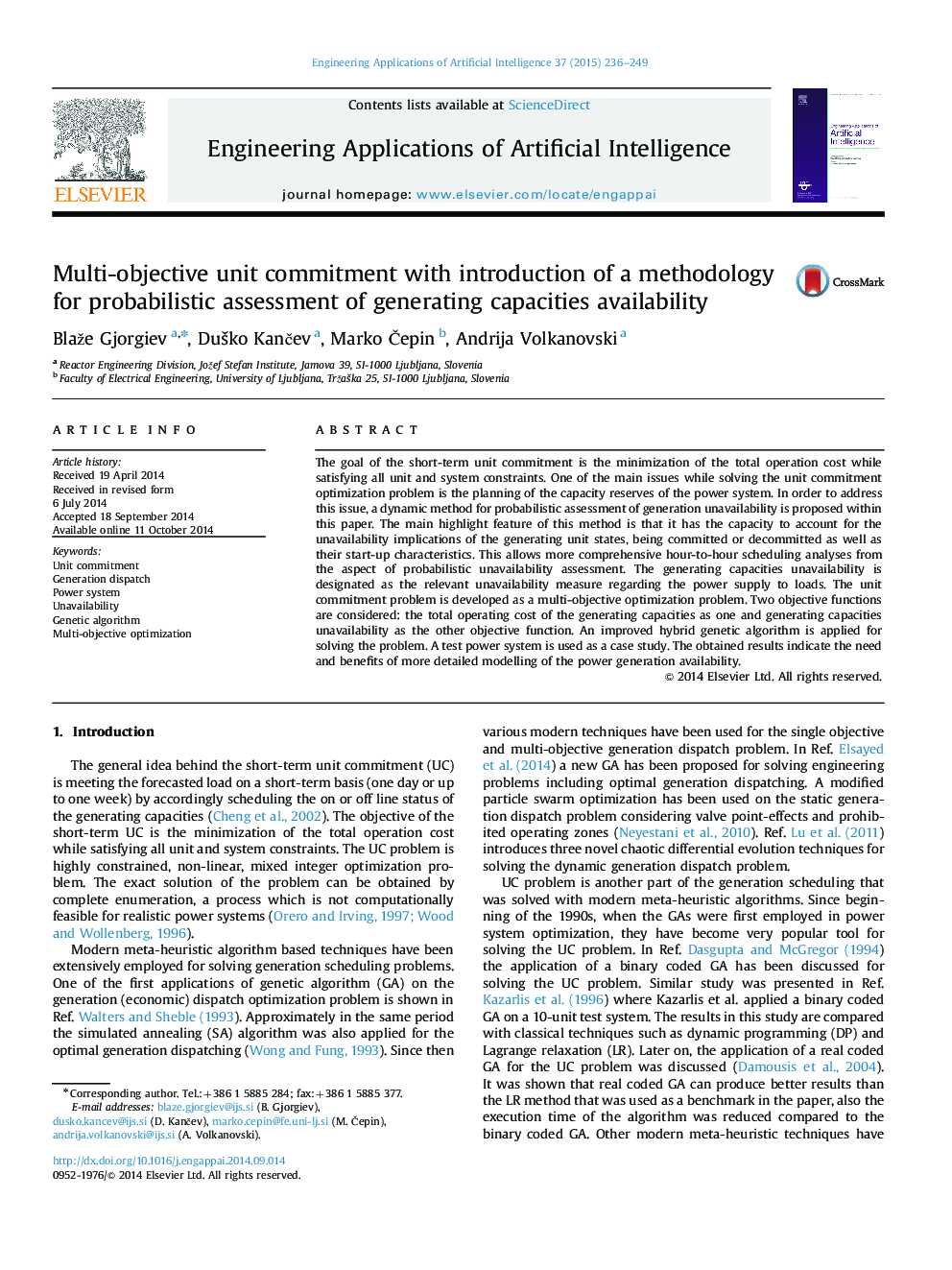| Article ID | Journal | Published Year | Pages | File Type |
|---|---|---|---|---|
| 380490 | Engineering Applications of Artificial Intelligence | 2015 | 14 Pages |
•The UC problem was developed as a multi-objective optimization problem.•Dynamic method for probabilistic assessment of generation unavailability is proposed.•An improved hybrid genetic algorithm was developed and applied on the UC problem.•The trade-off between cost and the unavailability was analysed.
The goal of the short-term unit commitment is the minimization of the total operation cost while satisfying all unit and system constraints. One of the main issues while solving the unit commitment optimization problem is the planning of the capacity reserves of the power system. In order to address this issue, a dynamic method for probabilistic assessment of generation unavailability is proposed within this paper. The main highlight feature of this method is that it has the capacity to account for the unavailability implications of the generating unit states, being committed or decommitted as well as their start-up characteristics. This allows more comprehensive hour-to-hour scheduling analyses from the aspect of probabilistic unavailability assessment. The generating capacities unavailability is designated as the relevant unavailability measure regarding the power supply to loads. The unit commitment problem is developed as a multi-objective optimization problem. Two objective functions are considered: the total operating cost of the generating capacities as one and generating capacities unavailability as the other objective function. An improved hybrid genetic algorithm is applied for solving the problem. A test power system is used as a case study. The obtained results indicate the need and benefits of more detailed modelling of the power generation availability.
